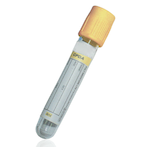
- Home
- Clinical Chemistry Tests
- Testosterone
Testosterone TESTIA (adults), PTEST (paediatrics)
Specimen Volume
0.3 mL serum , min.vol. 100 uLSample Preparation
Turnaround Time
24 hours (immunoassay), 5 working days (mass spec)Sample Processing In Laboratory
UsualSample Stability
4 ºCGeneral Information
Androgens are a group of steroids which cause masculinisations of the genital tract and the development and maintenance of male secondary sexual characteristics. They also contribute to muscle bulk, bone mass, libido and sexual performance in men. Testosterone is the major androgen secreted by the Leydig cells of the testes, and its production increases during puberty. Women produce about 5% to 10% as much testosterone as men. Testosterone directly effects some aspects of secondary sexual characteristics such as deepening of voice, increase of muscle mass and libido and also has some indirect effects in tissue with high 5alpha-reductase activity, where it serves as a prohormone to formation of dihydrotestosterone.
Testosterone may be requested, together with measurement of FSH and LH, in males for invesigation of sexual dysfunction or infertility.
In the female, testosterone is secreted by the ovary (60%) and is also derived from the peripheral conversion of androstenedione (40%) which is secreted in equal amounts by the ovary and adrenal. Hence, elevated serum testosterone levels can either be of ovarian or adrenal origin. Testosterone may be requested, together with other endocrine investigations, for the investigation of secondary amenorrhea, infertility or hirsutism/virilization. All female testosterone results by immunoassay that are above the reference range (>1.8 nmol/L) are automatically confirmed by mass spectrometry.
Patient Preparation
None
Notes
Testosterone in adults is measured using an automated Abbott Alinity immunoassay.
For female adult patients where the immunoassay result is above the reference range (>1.8 nmol/L) mass spectrometry analysis is automatically added for confirmation.
Testosterone in paediatric patients (<16y) is measured using mass spectrometry.
All referral samples from external laboratories, regardless of age, are measured by mass spectrometry.
If mass spectrometry analysis is required outside the above parameters, please contact the Duty Biochemist on ext.16543.
Reference Range
Adults (Alinity immunoassay):
Female: <1.9 nmol/L
Male aged 18-49 years: 8.3 - 30.2 nmol/L
Male aged >50 years: 7.7 - 24.8 nmol/L
Adults (mass spectrometry):
Female: <1.9 nmol/L
Male: 7.0-27.0 nmol/L
Paediatrics:
|
Group |
Testosterone (nmol/L) |
|
Neonates |
Not reported (can be elevated during year 1) |
|
Female Tanner 1 |
<0.6 |
|
Male Tanner 1 |
<0.7 |
Reference for mass spectrometry reference ranges:
- Kushnir et al (2010). Liquid Chromatography–Tandem Mass Spectrometry Assay for Androstenedione, Dehydroepiandrosterone, and Testosterone with Pediatric and Adult Reference Intervals. Clinical Chemistry 2010:56;1138–77.
Source of Reference Range
Immunoassay (Abbott Laboratories), Mass spectrometry (Kushnir et al 2010)Specifications
- EQA Status: NEQAS
- EQAS Scheme: Yes
Related Tests
Follicle Stimulating Hormone (FSH) Luteinising Hormone (LH)Creation Date
Monday, 08 August 2011Modification Date
Thursday, 23 November 2023General Information
Location of Laboratories
Copyright UHB Pathology 2018
Protection of Personal Information – Clinical Laboratory Services comply with the Trust Data Protection Policy and have procedures in place to allow the Directorate and it’s employees to comply with the Data Protection Act 1998 and associated best practice and guidance.
University Hospitals Birmingham medical laboratories at Queen Elizabeth Hospital, Heartlands Hospital, Good Hope Hospital and Solihull Hospital are UKAS (United Kingdom Accreditation Service) accredited to the ISO 15189:2012 standard. For a list of accredited tests and other information please visit the UKAS website using the following link: https://www.ukas.com/find-an-organisation/
- Molecular Pathology is a UKAS accredited medical laboratory No. 8759
- Biochemistry is a UKAS accredited medical laboratory No. 8910
- Haematology and Transfusion is a UKAS accredited medical laboratory No. 8784
- Clinical Microbiology is a UKAS accredited medical laboratory No. 8760
- Cellular Pathology is a UKAS accredited medical laboratory No. 10141
- Musculoskeletal laboratory is a UKAS accredited medical laboratory No. 9897
- Heartlands, Good Hope and Solihull Hospital pathology laboratories are a UKAS accredited medical laboratory No.8217.
Tests not appearing on the UKAS Schedule of Accreditation currently remain outside of our scope of accreditation. However, these tests have been validated to the same high standard as accredited tests and are performed by the same trained and competent staff.
For further test information, please visit the test database: http://qehbpathology.uk/test-database
For further information contact Louise Fallon, Quality Manager, 0121 371 5962
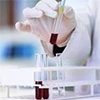 Biochemistry
Biochemistry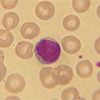 Haematology and Transfusion
Haematology and Transfusion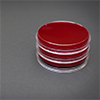 Clinical Microbiology (Including Virology)
Clinical Microbiology (Including Virology)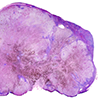 Cellular Pathology
Cellular Pathology General Information
General Information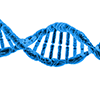 Molecular Pathology
Molecular Pathology